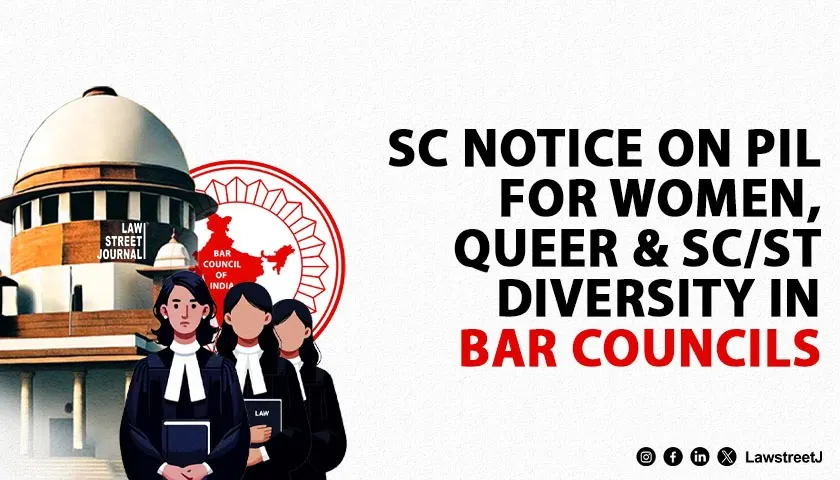New Delhi: The Supreme Court of India has issued notice on a public interest petition filed by Advocate Yogamaya MG, seeking directions to ensure proportional representation of women, queer persons, persons with disabilities, and lawyers belonging to SC/ST and other marginalised communities in the Bar Council of India (BCI) and all State Bar Councils. The petition highlights the persistent under-representation of these groups in the governing bodies of the legal profession and calls for structural reforms in election and representation mechanisms.
In the petition, Yogamaya MG points out that although the Advocates Act, 1961 has governed the legal profession for over six decades, there has been no legislative or policy intervention to address what she terms a “gross under-representation” of marginalised groups within statutory Bar Councils. According to the petition, of the 441 elected seats across all State Bar Councils, only nine are occupied by women, revealing a deeply entrenched imbalance in the governance of the bar.
The petition argues that the term “proportional representation” in Section 3(2)(b) of the Advocates Act, 1961 must be interpreted to include not only equal vote-share but also meaningful representation of historically excluded demographics—gender, sexual orientation, caste, disability, and other identity-based categories. It submits that the existing electoral architecture, being resource-intensive and highly politicised, deters meritorious lawyers from marginalised backgrounds from contesting, thereby perpetuating structural inequalities. The plea emphasises that representation is essential for inclusive governance, including ensuring facilities such as childcare, women-friendly infrastructure, accessible courts, and effective mechanisms for addressing harassment or discrimination within the profession.
The petition invokes constitutional guarantees under Articles 14, 15, 16, and 21, asserting that the exclusion of women and marginalised lawyers from representative bodies undermines the principles of equality, non-discrimination, and substantive access to public institutions. It also notes that courts have, in earlier instances, recognised the need for institutional reforms within professional and regulatory bodies to uphold constitutional morality and access to justice.
The Supreme Court has directed the Union of India and the Bar Council of India to respond to the petition. The notice was issued by a Bench led by the Chief Justice of India, according to filing records. The Court will now consider whether the provisions of the Advocates Act should be interpreted in a manner that mandates inclusive representation and whether the election procedures and by-laws of the Bar Councils require judicially mandated reforms to accommodate diversity.
If the Court grants relief, it could lead to significant institutional changes: election notifications may introduce quotas or reserved seats, structural measures to facilitate participation by marginalised lawyers may be mandated, and Bar Councils may be directed to ensure accessible infrastructure and inclusive governance. The outcome may reshape bar politics, enhance representation within statutory bodies, and influence how internal reforms are approached by regulators across India’s legal profession.
Case Title: Yogamaya MG v. Union of India & Others
Court: Supreme Court of India
Filing (Diary) / Date Notice Issued: November 26, 2025
Petitioner: Advocate Yogamaya MG













